There’s something special about when a team finally wins their first Stanley Cup. The Philadelphia Flyers, better known as “The Broadstreet Bullies,” were the first expansion team to win it all, defeating the big bad Boston Bruins in 1974, seven years after they joined the NHL. The next was the New York Islanders, who won their first of four to break up the Montreal Canadiens’ four-in-a-row and nearly had five had it not been for the Edmonton Oilers, who met them in the 1985 Final.
In most of these scenarios, it’s been a young, upstart team taking on embattled veterans in a classic David vs Goliath tale. But in 2023, fans have been treated to a different kind of Final battle, one that is far less common in NHL history: the battle of the Cup-less. Both the Vegas Golden Knights and the Florida Panthers are looking to claim their first Stanley Cup in franchise history, and no matter what happens, one will end their title drought.
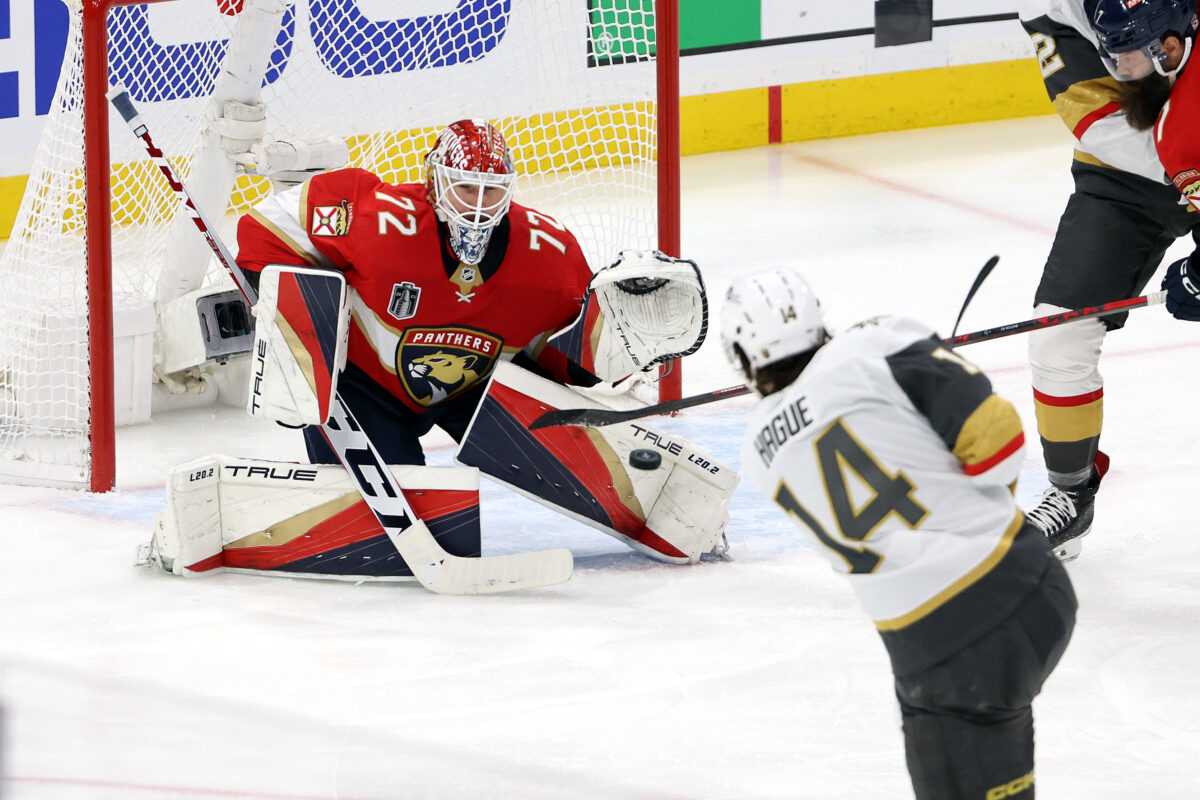
The Panthers and Golden Knights are just the seventh pair of teams without a title to their name to meet in the Final since the Cup became a playoff trophy instead of a Challenge Cup back in 1914-15, three years before the NHL became a league. In each case, the matchup transformed the fates of two franchises, for better or worse.
1915-16 – Montreal vs Portland
How did they get here? One would think that the very first playoff for the Stanley Cup must have featured two teams without a title, but that’s not entirely true. The 1914-15 Stanley Cup Final between the National Hockey Association (NHA) and the Pacific Coast Hockey Association (PCHA) was between the Vancouver Millionaires, who had never had a chance to compete for the prize before, and the Ottawa Senators, who had claimed claimed the title seven times from 1903 to 1911.
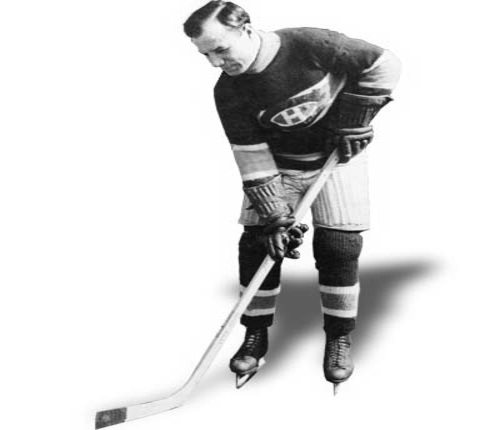
It wasn’t until the following year that fans were treated to two new faces. The Montreal Canadiens were a good team but had failed to find success in the NHA despite featuring Georges Vezina in goal, Jack Laviolette on defence, and Newsy Lalonde, arguably the greatest star of the early days of hockey, leading the offence. But when they added the tough-as-nails Howard McNamara they finally ascended to first place and got a shot to compete for the Stanley Cup.
Over in the PCHA, the Portland Rosebuds were a fairly fresh face in the league. Just one season prior, they had moved from New Westminister, British Columbia, citing low attendance during their three years there. In Portland, they found instant success, finishing second in their first season, then overtaking the powerhouse Vancouver Millionaires in 1915-16. They didn’t have a dominating offensive style, finishing third in goals scored in the four-team league. Still, their defence, led by fan-favourite Moose Johnson, two-way winger Eddie Oatman, and goalie Tom Murray, only allowed 50 goals all year, 17 fewer than second place.
The Stanley Cup Final: Since the Final had been held in Vancouver the previous year, the Rosebuds were required to travel the long journey by train to Montreal. It was assumed that they’d be ill-prepared for the first game the day after they arrived, but Portland proceeded to shut out the Canadiens in the first contest, 2-0. Montreal came back to claim the second game in a close 2-1 win, but tensions rose in the third matchup with a line brawl erupting after Portland’s Johnson cross-checked Lalonde, who didn’t take kindly to the infraction, and the violence spread into the stands. Police had to be called to the ice and threaten arrests unless the players abided by the referee’s penalties. The final score was 6-3 Montreal.
Portland came back with a vengeance in Game 4, winning 6-5 and staving off elimination, and in Game 5 they jumped out to an early 1-0 lead on a goal from Australian-born Tommy Dunderdale, but it would be the only goal the Rosebuds scored in the game. The Canadiens, with goals from Skene Ronan and George Prodgers, won the game and claimed their first Stanley Cup.
The Aftermath: Two years after their only Stanley Cup appearance, the Rosebuds disbanded, but they wouldn’t be forgotten; although they never won the Cup in their four years of existence, they managed to get their names engraved on it. When they won the PCHA’s title, taking it over from the Millionaires, they added their names to the trophy, a common practice at the time. It’s made them an interesting footnote in hockey history, as they are one of three teams on the permanent base ring of the trophy without winning the Cup that year. The Canadiens, on the other hand, went on to join the NHL in 1917-18 and became the most successful franchise ever, winning a total of 24 times.
1991 – Pittsburgh vs Minnesota
How did they get here? Despite putting together one of the NHL’s deadliest offences in 1990-91, scoring 344 goals, and acquiring two All-Star defenders at the trade deadline, the Pittsburgh Penguins looked shaky to start the 1991 Playoffs. Mario Lemieux, who had just returned from herniated disc surgery, was the only Penguin who scored in the team’s 3-1 Game 1 loss. Before they knew it, they were down three games to two against the plucky New Jersey Devils but they rallied back in Game 6, eking out a 4-3 win, then finishing the series off with a resounding 4-0 win. Round 2 against the Washington Capitals was much smoother, ending after just five games, and their third-round matchup against the Bruins saw them clean up the series after dropping the first two games.
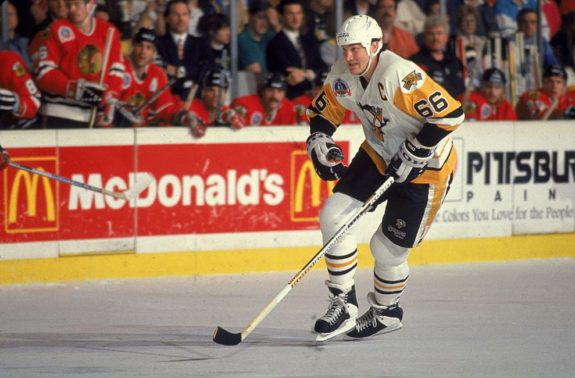
The Minnesota North Stars, on the other hand, barely snuck into the playoffs, finishing with a record of 27-39-14. That meant they had the unfortunate honour of playing the league-leading Chicago Blackhawks. The odds were not in the North Stars’ favour, but they managed to pull off the upset in six games, which included a big 6-0 win in Game 5. Minnesota looked even deadlier against the St. Louis Blues, winning in six and holding Brett Hull, who scored 86 goals in the season, to just three in the series. The current Stanley Cup title holders, the Edmonton Oilers, proved to be their easiest matchup yet, and the conference final was over in five games.
The Stanley Cup Final: Hopes were high for the North Stars after the first game, beating the Penguins 5-4. The Penguins, however, had lost each opening series match that season and had no problem coming back to win 4-1 in Game 2. Minnesota was right back in the mix in Game 3, beating Pittsburgh 3-1, but then the Penguins hit their stride and never looked back. Over the next three games, they outscored the North Stars 19-7, finishing the six-game series with a resounding 8-0 win at home, with Lemieux taking home the Conn Smythe Trophy after scoring a league-leading 44 points in 23 playoff games.
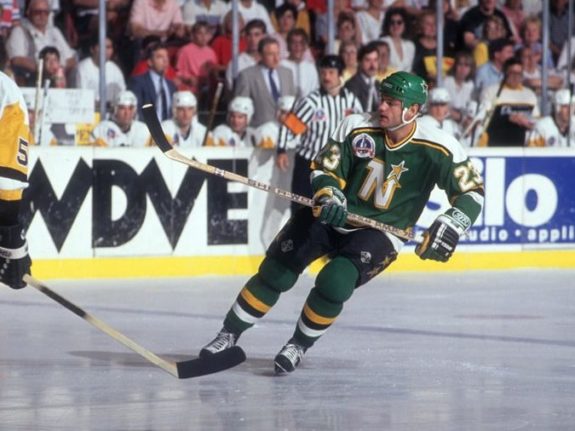
The Aftermath: The Penguins went on to claim their second Stanley Cup in 1991-92 and remained a dominant team for the next several seasons before age and injury eventually dismantled the roster. The North Stars, however, never fully recovered from that lopsided defeat, and with owner Norm Green facing increasing financial and legal issues, he demanded that he be allowed to renovate the arena and connect it to the new Mall of America. He was denied, and so he picked up and left for Texas, turning his team into the Dallas Stars for the 1993-94 season.
1996 – Colorado vs Florida
How did they get here? Before the Golden Knights, there was the Colorado Avalanche, who hit the ground running immediately after moving from Quebec in 1995-96 and finished first in the Pacific Division. With newly-acquired Patrick Roy between the pipes, the Avalanche tossed aside both the Vancouver Canucks and Chicago Blackhawks in six games in the first two rounds of the playoffs. Then came the Western Conference Semi-Final against the Presidents’ Trophy-winning Detroit Red Wings. The series was relatively uneventful for the first five games, with the Avalanche jumping out to a surprising 3-2 series lead. But in Game 6, a dirty hit from behind sent both teams into a line brawl that neither team forgot. The Avalanche won 4-1, taking the series, and inadvertently created one of the greatest rivalries in NHL history.
Related: The Sad Reality of the Presidents’ Trophy “Curse”
The Panthers were one of the greatest Cinderella stories of the 1990s. In its third season in the NHL, the team had a 41-31-10 record that all started with Scott Mellanby and an unfortunate rat that ran out into the Florida dressing room just before the team’s home opener against the Calgary Flames. Reacting in the moment, Mellanby slapped the rat into a wall, then went on to score two goals en route to a 4-3 win, causing goalie John van Biesbrouck to claim he scored a “rat trick.” The Panthers went on to win their next four games, and once fans caught wind of Mellanby’s actions, some took to throwing rats onto the ice after each goal, a trend that continued through the rest of the season and into the playoffs.
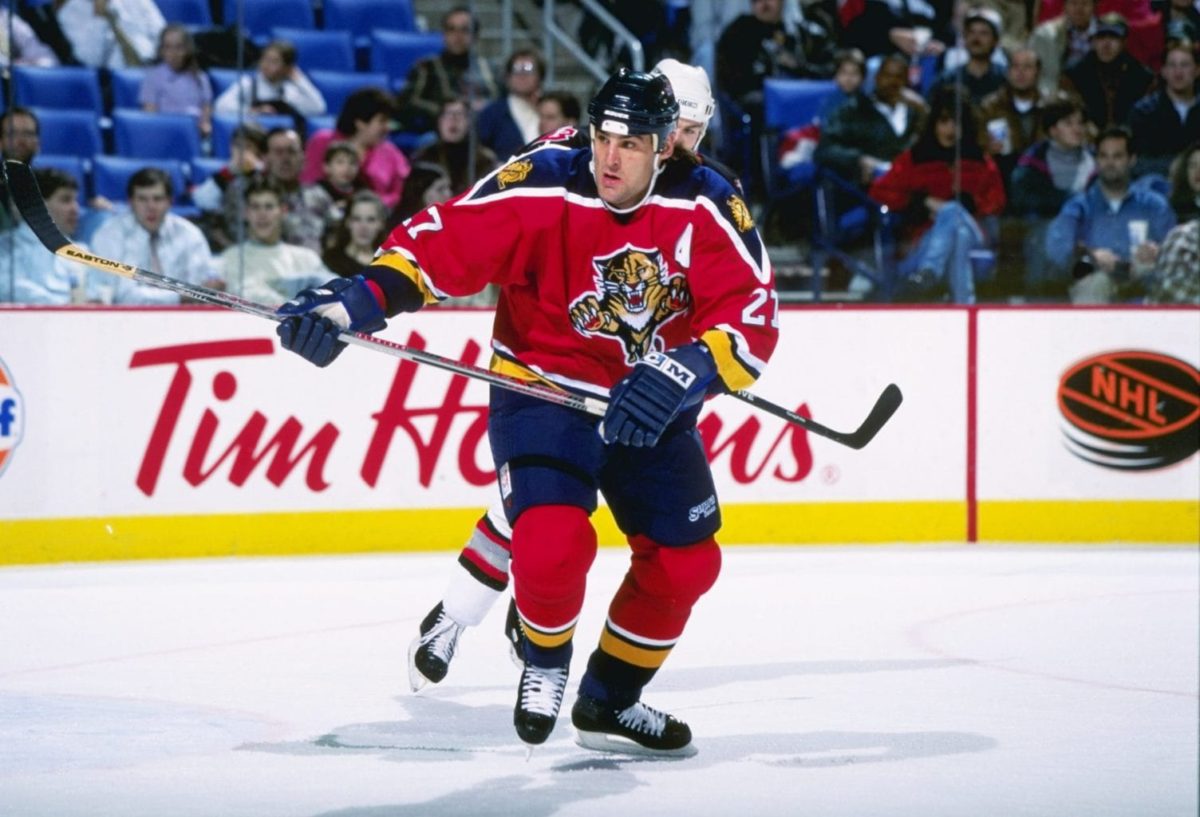
In the first round, Florida easily dispatched the Bruins in five games, then finished off the Philadelphia Flyers in six games in a series that saw an additional half-hour of overtime. The Penguins gave them their biggest challenge and nearly sent them packing in Game 6 of the Eastern Conference Final, but the Panthers managed to stay afloat with a 4-3 win and finished them off in Game 7 by a score of 3-1.
The Stanley Cup Final: Florida opened the scoring against the Avalanche in Game 1, but couldn’t hold off Colorado’s offence for long and allowed three goals in the second period, resulting in a 3-1 loss. Game 2 was a blowout, with the Avalanche winning handily 8-1, and although Game 3 was closer, it still resulted in an Avalanche win. Down 3-0, the Panthers needed a win, and with the absolute determination they had shown all season, they pushed Game 4 to the third overtime before Colorado’s Uwe Krupp finally broke the 0-0 tie to give the Avalanche their first Stanley Cup and send home the plucky Panthers empty handed.
The Aftermath: The Avalanche’s dominant win over the Panthers cemented their place as one of the best teams of the decade and they remained Stanley Cup favourites well into the 2000s, winning their second title in 2001 over the Devils. The Panthers, however, struggled to recapture the magic of The Year of the Rat; over the next 15 years, Florida made the playoffs just three times and didn’t advance past the first round until 2021-22.
1999 – Dallas vs Buffalo
How did they get here? The Buffalo Sabres were not a great team in 1998-99. They finished 17th in goals scored, three goals behind the Panthers who failed to make the playoffs that year, and only one player on the roster finished with more than 30 goals. However, their goalie was the best in the world. Since coming over from the Blackhawks, Dominik Hasek led the NHL with the lowest save percentage from 1993 to 1999 and won five Vezina Trophies in that span. He alone seemingly propelled them into the playoffs, where they swept the Ottawa Senators, beat the Bruins in six games, and eliminated the Toronto Maple Leafs in five games before making their second Final appearance in franchise history.
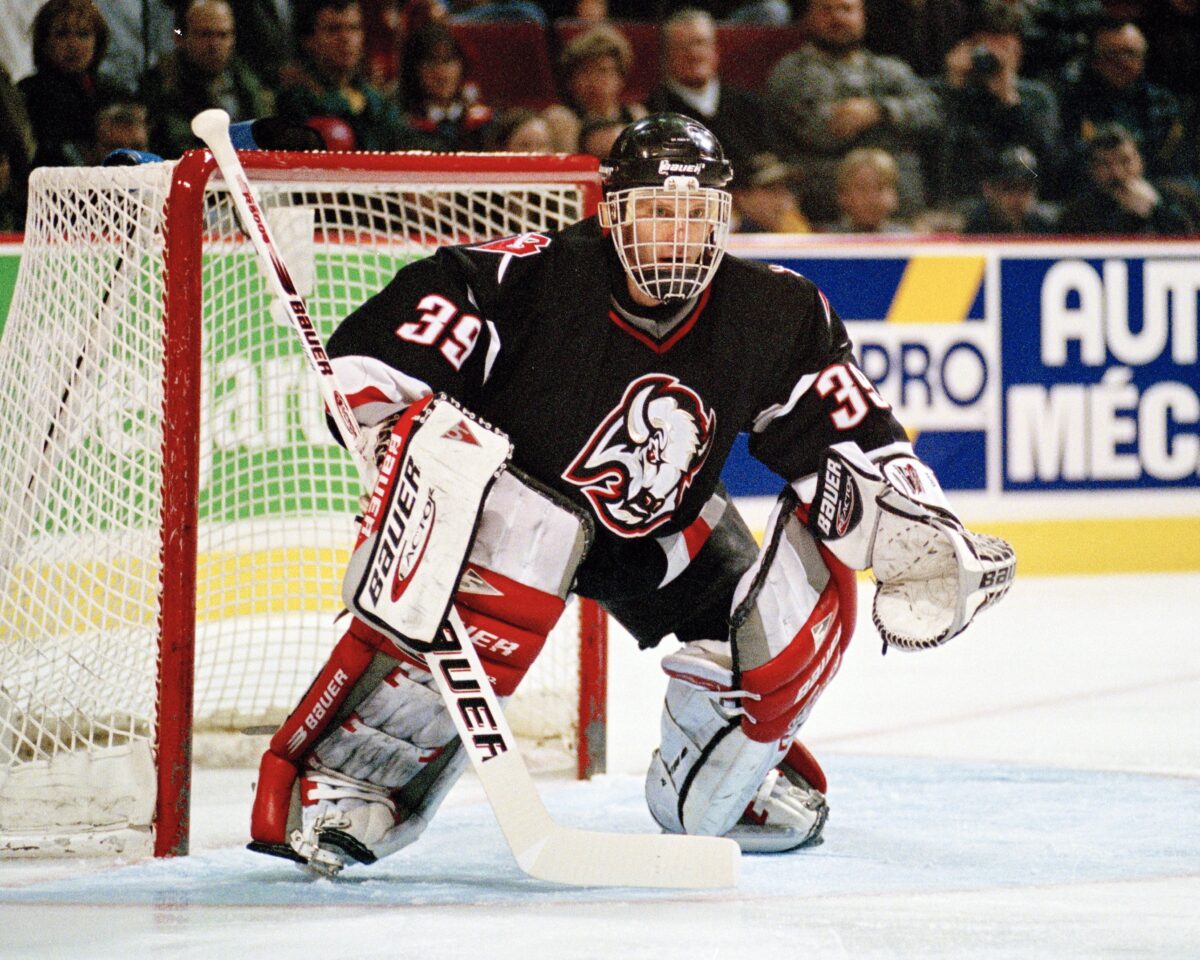
Only one team allowed fewer goals than Buffalo that year, and that was the Stars, who also had an All-Star goalie they could rely on in Ed Belfour. Once a teammate of Hasek’s, he signed with Dallas in 1997-98 and turned the team into a dominant force. Another big performer they added was Brett Hull, and his 32 goals helped propel the Stars to a league-leading 51 wins. They too swept their opening-round opponent in the Oilers and defeated the Blues in six games, but nearly fell apart in the conference final when they came up against Roy and the Avalanche, who quickly got up to a 3-2 series lead. But a pair of 4-1 wins stamped the Stars’ ticket to the Final for the first time since moving to Dallas.
The Stanley Cup Final: The Stars and Sabres were surprisingly evenly matched in this series. Buffalo took Games 1 and 4 against the Presidents’ Trophy winners with a 3-2 overtime victory with Hasek stopping 65 of 68 shots, while Dallas won Games 2 and 3, holding the Sabres to just 33 shots over the two matches. A 2-0 victory in Game 5 put Dallas within one win of their first Stanley Cup, but the Sabres weren’t ready to roll over quite yet. After evening up the score at 1-1 in the second period of the sixth game, Hasek and Belfour shut down the game. After two and a half overtime periods, the score remained tied until Hull finally put the puck past Hasek, securing the win and the Cup.
The Aftermath: Hull’s goal has gone down as the most controversial Cup-winning goal of all time due to a rule that stated that any goal would be disallowed if a player has their foot in the crease. When Hull scored in the third overtime of Game 6, his foot was clearly in the crease, but it was still ruled a goal, allowing Dallas to win its first Stanley Cup. Sabres’ fans were furious and are still bitter about the call to this day since the franchise is still without a title to its name. Three years later, Hull joined Hasek on the Red Wings, where they would help the franchise win its 10th title.
2007 – Anaheim vs Ottawa
How did they get here? After years of being one of the best teams in the Eastern Conference, the Ottawa Senators finally found playoff success in one of the most dominant runs in recent history. In Round 1, they faced a very young Penguins team that featured both Marc-Andre Fleury and Sidney Crosby and rookie Evgeni Malkin, then went up against three-time Cup winner Martin Brodeur and the Devils in Round 2, and finally, met the Presidents’ Trophy-winning Sabres in the Eastern Conference Final. In each matchup, the Senators ended the series in just five games, allowing more than three goals in a game just twice on their historic playoff run. Much of that was thanks to the incredible performance of Ray Emery, who posted a league-leading three playoff shutouts.
Over in the Western Conference, the Anaheim Ducks were nearly as dominant, beating the Minnesota Wild and Vancouver Canucks also in just five games, then took out the Red Wings in six games in the conference final. But it wasn’t nearly as surprising a run as the Senators; led by Hall-of-Famers Scott Niedermayer and Chris Pronger on defence, Teemu Selanne up front, and sophomores Corey Perry, Dustin Penner, and Ryan Getzlaf, the Ducks were the most penalized team in the regular season, but also had one of the best penalty killing units, making them a popular choice among analysts to make the Final.
The Stanley Cup Final: On paper, this was a matchup for the ages – the Senators, with Daniel Alfredsson, Jason Spezza, and Dany Heatley, had one of the most potent offences in the 2007 Playoffs, while the Ducks were one of the stingiest teams in giving up goals. But when it finally arrived, it was a disappointment. Anaheim jumped out to an early 2-0 series lead, and although Ottawa came back in Game 3, the Ducks got into the Senators’ heads. Alfredsson, normally a gentlemanly player, shot a puck at Ducks’ captain Niedermayer in the dying seconds of Game 4, then, in Game 5, Senators’ defender Chris Phillips scored an own-goal, putting Anaheim up 3-1 en route to a 6-2 final, ending the series once again in five games.
The Aftermath: Although it remains the Ducks’ only Stanley Cup, the team remained a dominant force for the next decade, making the playoffs in nine of the next 11 seasons and reaching the conference final twice in 2014-15 and 2016-17. The win cemented Pronger’s legacy as a Hall-of-Famer and forged the careers of both Getzlaf and Perry as clutch performers. The Senators, however, regressed heavily, missing the playoffs in 2007-08. Emery never recovered the magic he found in the 2007 run and was waived the following season. Although it marks the highest achievement for Ottawa, the success comes with an asterisk as it also marked the beginning of the end for the team.
2018 – Washington vs Vegas
How did they get here? With Alex Ovechkin at the helm, the Capitals were one of the best teams in the league for over a decade, but once the playoffs came, the team floundered, earning a reputation as a team unable to get past the second round. Much of that had to do with Crosby and the Penguins, and so when Washington met up with its playoff rival in the 2018 Playoffs after dispatching the Columbus Blue Jackets in Round 1, it felt like everything was on the line. However, a strong win in Game 2 set the tone and finally, after a decade of struggles, the Capitals were on their way to the Eastern Conference Final. There they met the Tampa Bay Lightning, who nearly ended the team’s hopes, but then goalie Braden Holtby decided that he wasn’t going to let in any more goals, and the final two games ended in shutout victories.
Related: Alex Ovechkin’s Milestones Through the Years
After an eventful expansion draft, most people expected the Golden Knights to be good, but no one saw them taking first place in the Pacific Division and then sweeping the Los Angeles Kings in the first round. The San Jose Sharks were also no match for the expansion team, falling to Vegas in six games, and the Winnipeg Jets bowed out after five in the Western Conference Final, sending Vegas to the Final in their inaugural season. Although the Avalanche were the first team in a new location to make the Stanley Cup Final, no expansion team had ever done as well as Vegas in their inaugural season.
The Stanley Cup Final: Seeing the Golden Knights in the Final split many fans – should a team be able to win the Cup in their first season? Vegas sure thought so, and they took Game 1 of the series with a dominant 6-4 victory. But in the end, Washington’s experience won out. Over the next three games, Vegas failed to score more than two goals in a game, while Ovechkin scored in two of the three contests. The Golden Knights briefly looked like they might stave off elimination in Game 5, getting up to a 3-2 lead late in the second period, but Holtby once again shut the door, allowing nothing past him in the third while Devante Smith-Pelly and Lars Eller put two away for the win.
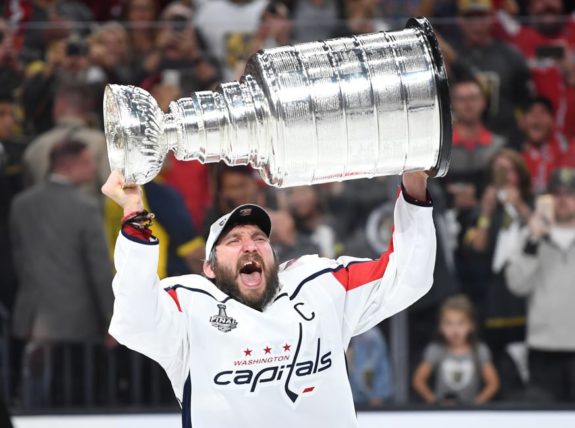
The Aftermath: For the first time in a Cup-less Final matchup, neither team suffered any real consequences. The Golden Knights remained one of the strongest teams over the next five seasons, although they struggled to repeat their initial success. The Capitals have regressed since, but they were already at the end of their Stanley Cup window. But Ovechkin shed his negative reputation as a player who choked in the playoffs and a scorer on the decline; in the years since he lifted the Cup, he’s hit 50 goals twice along with another two 40-goal seasons. It’s possible that, when he finally retires, he could be the greatest goalscorer of all time.
Who Will Win in 2023?
It will be interesting to see what happens following the 2023 Stanley Cup Final. The Panthers, led by Matthew Tkachuk, have become one of the most likeable – and most hated – franchises in the NHL. Already, he’s become one of the faces of the league, evidenced by his feature in People Magazine, of all places. But if he loses, will that reputation stick with him?
Similarly, Vegas has earned a reputation as a team that will do anything to win; they sold off their starting goalie for peanuts after he won the Vezina Trophy, dumped numerous first-round picks for veterans, and paid free agents buckets of money to entice them away from their longtime franchises. Yet it seems to be working, and a Stanley Cup win could change their reputation as a ruthless and poorly managed franchise to savvy and creative. No matter what happens, one team’s fate will be changed. That’s the power of a Stanley Cup win.
